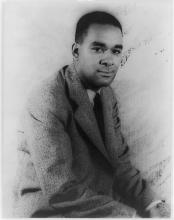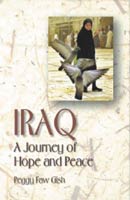Culture Watch
Book Review: American Dream: Three Women, Ten Kids, and a Nation's Drive to End Welfare (Viking: 2004).

Richard Wright was a political activist, but his loyalty was to his art.
One of the big lies of the modern age is that economics is uninteresting. In reality, what is boring is the way economists write (Joseph Stiglitz, the Tom Clancy of economic prose, is the one notable exception).
Swanee Hunt, founder of Women Waging Peace, spoke with Sojourners Rose Marie Berger about her book This Was Not Our War and the ways women are engaged in peace processes in conflict-ridden countries.
Sojourners: What got you involved in Bosnia?
 A Peace Diary
A Peace Diary
Longtime peace advocate Peggy Gish traveled to Iraq, along with others in the Christian Peacemaker Teams, to do what she does best: get in the way. Iraq: A Journey of Hope and Peace is her story of their work before, during, and after the U.S. invasion. Told in the first-person, Gish recounts her efforts to create relationships with Iraqis, fight for justice, and seek peace. Herald Press.
In The Coal Tattoo, Silas Houses third novel, House conjures up a setting that breathes and hums with life. Kentucky coal country in the 1960s is more a character than a mere backdrop for his story.
Since 9-11 the capacity of Islam for renewal and change has become a central issue in the complex religious and political give-and-take that now surrounds relations between the West and the Muslim community worldwide.
More than four decades ago, Michael Harrington held a mirror up to Americas self-image of affluence with his searing picture of poverty, The Other America. Harringtons book was read widelyby President John Kennedy, among othersand fueled the moral and intellectual resolve behind the 1960s "war